
Understanding The Probate Process In Virginia: A Comprehensive Guide
To sell a house in Virginia after a loved one passes away, the probate process must be completed. Selling a Virginia probate house requires understanding this process.
The court must be petitioned to open the probate case. After this, an executor or personal representative will be appointed to manage the estate.
Next, the deceased’s assets and debts must be inventoried. This includes the house, outstanding mortgages or taxes, and other debts or assets.
The executor must then notify heirs and creditors of the probate case. After debts are paid, the heirs can receive the remaining assets according to the deceased’s will or state laws if no will exists.
Once court approval is obtained, the property can be sold, and the proceeds distributed to beneficiaries. Depending on court schedules and heir disputes, this process can take months or years.
TABLE OF CONTENTS
- Selling A House In Probate: Tips And Tricks For Success In Virginia
- The Ins And Outs Of Selling Your Inherited Property In Virginia
- What You Need To Know About Probate Sales In Virginia
- Exploring The Differences Between Intestate And Testate Probate In Virginia
- How To Prepare For Selling Real Estate Through Probate In Virginia
- Important Takeaways For Successfully Selling A House In Probate
- Can You Sell A House During The Probate Process? Understanding Your Options In Virginia
- Demystifying Inherited Properties: Everything You Need To Know
- Necessary Steps After Inheriting A Property: A Guide For Virginians
- Avoiding Probate Court In Virginia: Strategies For Preserving Your Inheritance
- Required Documents For Selling An Inherited Property In Virginia
- Overcoming Challenges When Selling An Inherited Property In Virginia
- Navigating Tax Implications When Selling An Inherited Property In Virginia
- How To Maximize Profits When Selling A House In Probate
- Choosing The Right Real Estate Agent For Your Probate Sale: What To Look For
- Understanding The Role Of Executors And Administrators When Selling Real Estate Through Probate
- How To Avoid Paying Capital Gains Tax On Inherited Property Near Virginia?
- What Assets Are Exempt From Probate In VA?
- How Do You Transfer Real Estate After Death In Virginia?
- Does A House Go Through Probate In Virginia?
Selling A House In Probate: Tips And Tricks For Success In Virginia
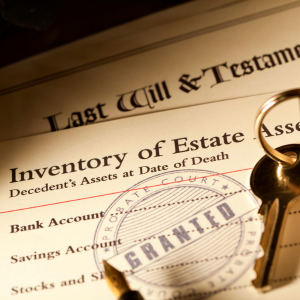
Selling a house in probate can be a difficult and overwhelming process, particularly in Virginia. However, with the right tips and tricks, you can increase your sales and achieve success.
The first step is to understand Virginia probate laws, which can differ from state to state. Gather all property-related documents, including wills, trusts, property taxes, and outstanding debts.
Furthermore, preparing the property for sale by performing necessary repairs and staging can greatly increase its appeal to potential buyers. Working with an experienced real estate agent who is knowledgeable about probate sales in Virginia can help you navigate legal complexities and ensure a smooth transaction.
By following these tips and tricks, you can successfully sell a Virginia probate house and maximize your profit.
The Ins And Outs Of Selling Your Inherited Property In Virginia
Selling an inherited property in Virginia can be a difficult and overwhelming task. As the executor of the estate, it is your responsibility to sell the property for its full value.
Managing an inherited house in probate often involves handling legal and financial matters while also addressing any emotional ties to the property. To move forward smoothly, it’s important to understand the process and follow the right steps, especially if you’re considering selling distressed property.
This guide will help you sell your inherited property in Virginia, including preparing it for sale, finding the right real estate agent, and dealing with any challenges that may arise during the process. By following this guide, you can maximize your sales and alleviate some of the difficulties associated with selling a house in probate.
What You Need To Know About Probate Sales In Virginia
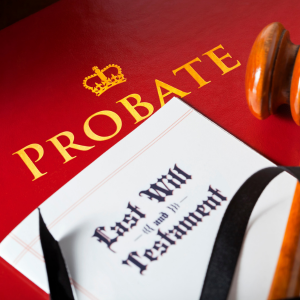
If you want to sell a home in Virginia probate, there are a few things you should know. Understanding the probate process and its differences from traditional home sales is crucial.
The probate process in Virginia can be lengthy and complex, involving court hearings and legal paperwork. Having an experienced real estate agent who understands probate sales in Virginia is essential.
Furthermore, all necessary documentation, such as the deceased’s will and any relevant financial information, should be in order. Properly pricing a home is crucial when selling through probate in Virginia, as the court must approve the price.
Understanding these key points will allow you to maximize sales and ensure a smooth probate process in Virginia.
Exploring The Differences Between Intestate And Testate Probate In Virginia
If you want to sell a house in Virginia probate, you need to know the difference between intestate and testate probate. Testate probate is used when there is a valid will and the person who died did not leave a will. Intestate probate is used when there is no will.
In Virginia, the steps for each type of probate are slightly different. In intestate probate, the court will choose an administrator to handle the assets according to the state’s laws.
In intestate probate, on the other hand, the executor named in the will is in charge of giving away the estate’s property according to the wishes of the person who died. Both types of probate can take a long time and may need court approval before a property can be sold.
Knowing these important differences can help you complete the process faster and make more sales during this difficult time.
How To Prepare For Selling Real Estate Through Probate In Virginia
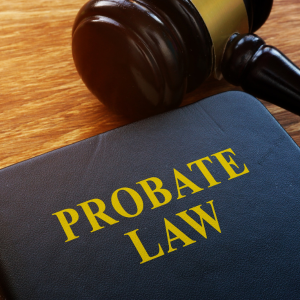
In Virginia, selling a house through probate can be difficult, but if you plan ahead, you can get the best price and ensure the deal goes smoothly. The first step is to gather all the necessary papers, which should include the will and death certificate of the previous owner who has died.
It is also important to learn about the laws and procedures for probate in Virginia. To do this, you might need to talk to a probate lawyer or ask the local court for help.
Also, it’s important to check out the property’s condition and make any repairs or improvements that are needed before putting it on the market. Lastly, setting the right price for the property and working with experienced real estate agents can help you get a good sale price and attract buyers.
If you follow these steps, you’ll be able to sell real estate through Virginia probate with no problems.
Important Takeaways For Successfully Selling A House In Probate
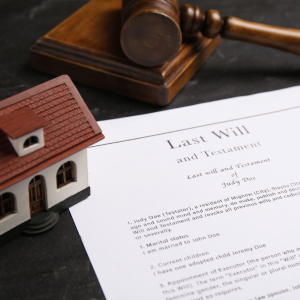
Virginia probate house sales can be successful with some key lessons. The probate process and executor or personal representative role must be understood first.
He or she will handle the legal and financial aspects of the sale. Before selling, check the property’s condition and make any needed repairs.
Pricing the house correctly can also affect its sale speed. To increase your chances of success, use professional marketing strategies and hire a reputable real estate agent with probate sales experience.
Finally, a smooth sale requires clear communication with all parties, including heirs and beneficiaries.
Can You Sell A House During The Probate Process? Understanding Your Options In Virginia
Selling a house during probate, especially in Virginia, can be difficult. A deceased person’s assets and debts are distributed through probate.
The executor or personal representative usually sells the property. There are several ways to boost sales during this time.
Listing the property with a real estate agent may be delayed and cost more. You can also sell the property directly to a cash home buyer for a quick and easy transaction.
In Virginia probate, knowing your options and working with an experienced professional can help you sell your home.
Demystifying Inherited Properties: Everything You Need To Know

It can be hard to figure out how to sell a Virginia home that a loved one has left behind after they have died. Selling an inherited property in probate can be a lot easier if you know what you’re doing and have help.
To legally sell a house during probate, you need to know what steps to take, like getting letters of administration, filing for probate court approval, and giving the money from the sale to the heirs. You also have much better chances of making a sale if you know how to price and market the property correctly to attract potential buyers.
People can confidently go through this often difficult process by learning these important things about selling an inherited home in Virginia.
Necessary Steps After Inheriting A Property: A Guide For Virginians
If you inherited a Virginia home, you must know how to sell it in probate. This process can be overwhelming and confusing, but with the right knowledge and guidance, you can succeed.
First, decide if the property needs probate. Obtain letters of testamentary or administration from the court before proceeding with the sale.
Before selling the property, it is important to assess and settle any debts or taxes. A real estate agent with probate sales experience can also help navigate this complicated process.
Title deeds, insurance policies, and mortgage information should also be collected. After inheriting a Virginia property, follow these steps to maximize your sale and ensure a smooth transaction.
Avoiding Probate Court In Virginia: Strategies For Preserving Your Inheritance
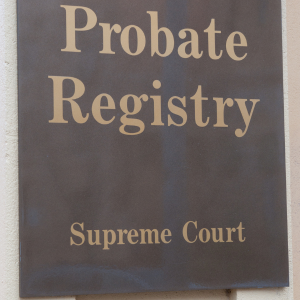
There are some things that can be done to avoid going through probate court when selling a house in Virginia that is in probate. This is necessary because going through probate court can take a lot of time and cost a lot of money. It may also make your inheritance less valuable.
You can avoid probate court by creating a revocable living trust. This type of trust lets you give property ownership to the trust while still keeping control over it. You can also choose joint tenancy with the right of survivorship, which means that when one of you dies, the property automatically goes to the other joint owner.
Also, making sure that all the necessary forms are filled out and sent in correctly can speed up the process and keep you out of probate court altogether. If you follow these tips and stay organized while selling, you can get the most money for your home and keep your inheritance without having to go through Virginia’s probate court.
Required Documents For Selling An Inherited Property In Virginia
When dealing with an inherited property in Virginia, the necessary paperwork can add a layer of complexity to an already daunting process. As the administrator or executor of the estate, you must collect and submit a number of important documents to sell the house during probate.
Court orders pertaining to the probate process, copies of the decedent’s will or testamentary or administrative letters, the death certificate, and any other relevant documents are all part of this. Furthermore, you must furnish any pertinent tax records, including property tax assessments, along with a duplicate of the property’s deed.
To avoid unnecessary delays or complications and speed up the sale process, make sure all of these documents are organized and easily accessible.
Overcoming Challenges When Selling An Inherited Property In Virginia
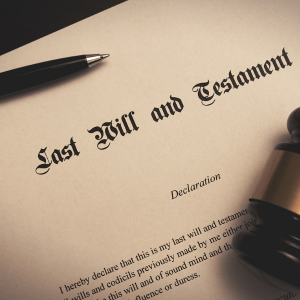
Virginia’s inheritance can be good and bad. Selling an inherited property in probate can be difficult.
Virginia inheritance is both rewarding and difficult. Selling inherited property in probate can be difficult.
You may lack experience in the real estate market or the legal process of selling a probate house. Selling inherited property can be overwhelming and stressful.
Additionally, emotional attachments to the property may make it hard to make objective decisions during the selling process. Keeping up with paperwork and legal requirements can be time-consuming and complicated.
Understanding these challenges and working with real estate agents and attorneys to sell your Virginia inherited property can help overcome them.
First, you may lack knowledge of the real estate market or probate legal process for selling a house. Selling your inherited property can be overwhelming and stressful.
Property owners may have emotional attachments, making it hard to make objective decisions during the selling process. Completing all paperwork and legal requirements can be time-consuming and complicated.
However, by understanding these challenges and working with real estate agents and attorneys, you can sell your Virginia inherited property.
Navigating Tax Implications When Selling An Inherited Property In Virginia
Virginia probate house sellers must consider the tax implications of transferring inherited property. The first step is to determine the fair market value of the house to calculate any potential capital gains tax.
Remember to consider any outstanding debts, liens, and estate taxes on the property. If the deceased owned the house for more than a year, they may qualify for a step-up in basis, reducing capital gains tax.
A financial advisor or tax professional can help you navigate these complexities and maximize sales while minimizing taxes.
How To Maximize Profits When Selling A House In Probate
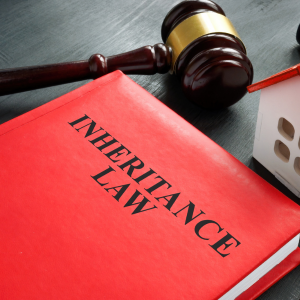
The seller of a Virginia probate house should maximize profits. Following certain steps and tactics can increase the property’s value and attract buyers.
To accurately assess a house’s market value, seek a professional appraisal or consult with a real estate agent with probate sales experience. Updating and repairing the house can boost its appeal and selling price.
The house must be properly staged for showings to highlight its best features and welcome potential buyers. Setting a competitive listing price based on market trends and comparable properties can increase buyer interest and lead to multiple offers, ultimately increasing the sale price.
Finally, working with a probate attorney or real estate agent can ensure legal compliance and maximize seller profits.
Choosing The Right Real Estate Agent For Your Probate Sale: What To Look For
It’s very important to find the right real estate agent when selling a house in Virginia that is in probate. Some real estate agents don’t know much about the unique process of probate sales, so it’s important to find someone who does.
You should hire a real estate agent who knows the area well and can price your home correctly. They should also have good communication skills and be able to negotiate well on your behalf.
Also, look at how well they’ve handled probate sales in the past and ask for references from past clients. Having a real estate agent, you can trust will make all the difference in getting the most sales during this tough time.
Understanding The Role Of Executors And Administrators When Selling Real Estate Through Probate

If you want to sell a house in Virginia that is still in probate, you should know what executors and administrators do. An executor is someone who is named in a person’s will to manage their estate, which includes selling real estate.
They are in charge of the probate process, which includes getting permission from the court to sell the property. On the other hand, when there is neither a will nor an executor named, the court names an administrator.
They are also responsible for the same things as executors, but they have to follow strict rules set by the court. Executors and administrators both have to do what’s best for the estate and its beneficiaries. In exchange, they usually get a cut of the sale proceeds as payment for their work.
To ensure a smooth process, everyone involved in selling a house through probate in Virginia needs to know their roles and responsibilities.
How To Avoid Paying Capital Gains Tax On Inherited Property Near Virginia?
Capital gains taxes on inherited property may worry Virginians selling a probate house. With proper planning and knowledge of Virginia tax laws, capital gains tax on inherited property can be minimized or avoided.
Selling inherited property quickly is a strategy as the tax basis is determined at death. Optional deductions include the stepped-up cost basis and primary residence exclusion.
A knowledgeable real estate professional and tax advisor can help maximize sales and minimize tax liabilities. These tips and knowledge of Virginia’s laws will help you sell a probate house without paying excessive capital gains taxes on your inherited property.
What Assets Are Exempt From Probate In VA?

Knowing which assets are exempt from probate is crucial when selling a Virginia house in probate. Probate does not apply to joint tenancy property, life insurance policies with beneficiaries, or retirement accounts with beneficiaries.
Living trusts and payable-on-death assets also avoid probate. The estate executor must identify and manage these exempt assets to maximize house sales and ensure a smooth transfer of ownership.
By working with a Virginia probate attorney, you can confidently sell a house in probate and protect these exempt assets from delays and complications.
How Do You Transfer Real Estate After Death In Virginia?
Real estate is a major concern after a loved one dies. Transferring real estate after death in Virginia, especially in probate, is complicated.
You can maximize your sale and transfer the property to its new owner with the right knowledge and guidance. The first step is to determine if the property is probate or has a beneficiary.
Before selling a property, it’s important to follow the correct legal steps and gather all required documentation. Knowing how Virginia’s probate sale process works can help you sell the home efficiently and respectfully. If you’re asking, do I need a lawyer to sell my house, legal guidance can be especially valuable during a probate sale to ensure everything is handled properly.
Does A House Go Through Probate In Virginia?
If you need to sell a house in Virginia that is in probate, you should know how the legal process works. This is what Virginia law says must happen before a house can be sold.
The property is part of the person who died’s estate and must be given out according to their will or the laws of the state if there is no will. The probate process makes sure that all debts and taxes are paid and that any assets that are left over, like the house, are given to the rightful heirs.
Even though this may seem difficult, with the right help and information, you can navigate the probate process and maximize your sales.
This information applies to Richmond and its cities, including Alexandria, Fairfax, Richmond, and more. For assistance or questions, please call us at (804) 376-8771. You can also visit our website at Cash For Houses Girl for more details.
| PROBATING | PROBATE ADMINISTRATION | CLAIMS AGAINST ESTATE | LAST WILL AND TESTAMENT | DEVISEES | EXECUTRIX |
| INCOME | TAX RETURNS | INCOME TAX RETURN | BROKERS | COMPARATIVE MARKET ANALYSIS | REALTORS |
| REAL ESTATE BROKER | ATTORNEYS AT LAW | INTESTACY | WITHOUT A VALID WILL | INTESTACY LAWS | FEDERAL ESTATE TAX |
| STATE ESTATE TAX | INHERITANCE TAX | INCOME-TAX | INCOME TAX | INDIVIDUAL INCOME TAX | EXPENSES |
| FIDUCIARY | FIDUCIARIES | THE COMMONWEALTH | COMMONWEALTH | TESTATOR | INCOME TAX RETURNS |
| CIRCUIT COURT | BOND | TRUSTEE | VALUATION | MORTGAGE LENDERS | BUSINESS ENTITY |
| CONTRACT | REVOCABLE TRUST | REAL PROPERTY | INVESTORS | GOOD FAITH | |
| FAQS | TAX RATE | MONEY |


